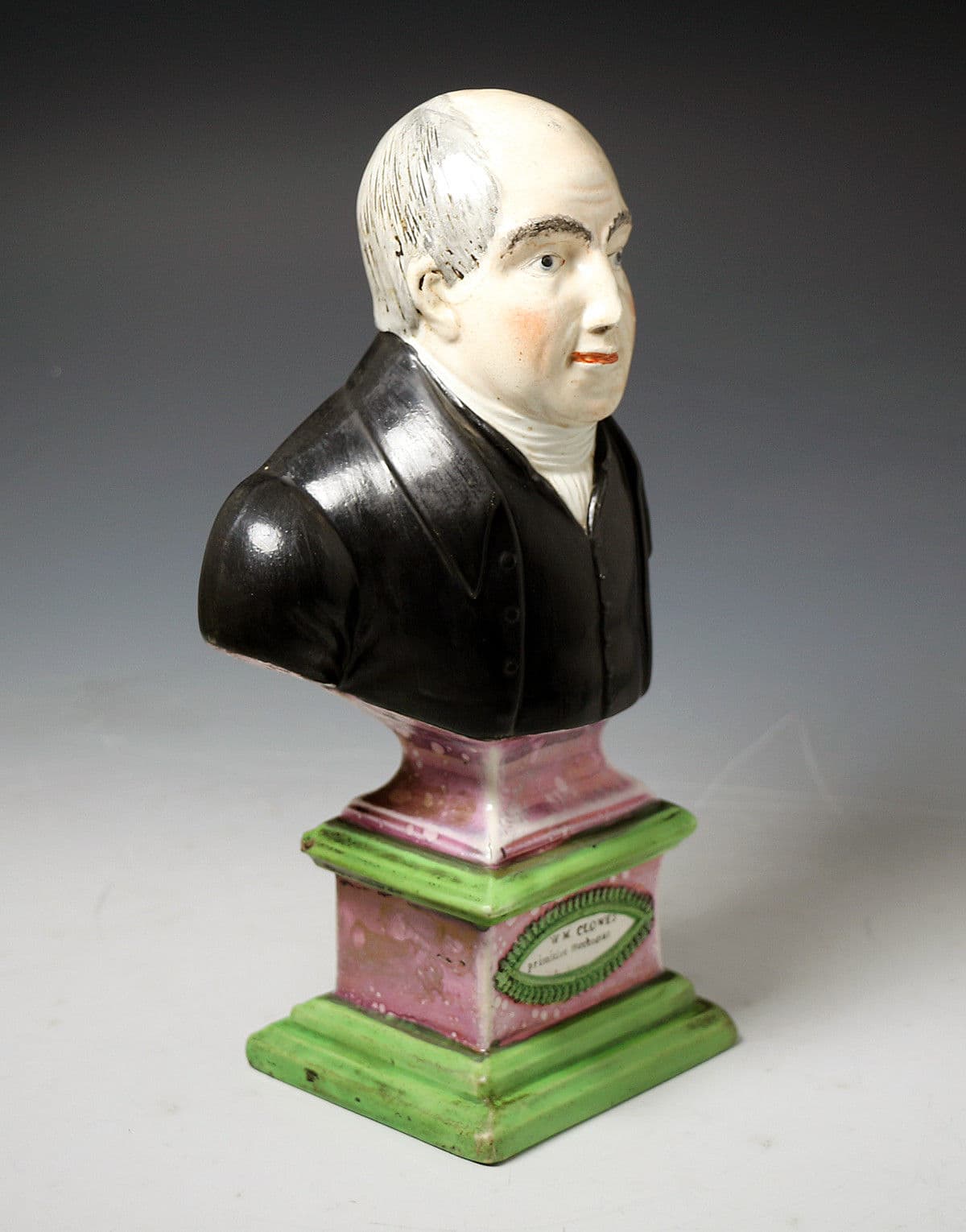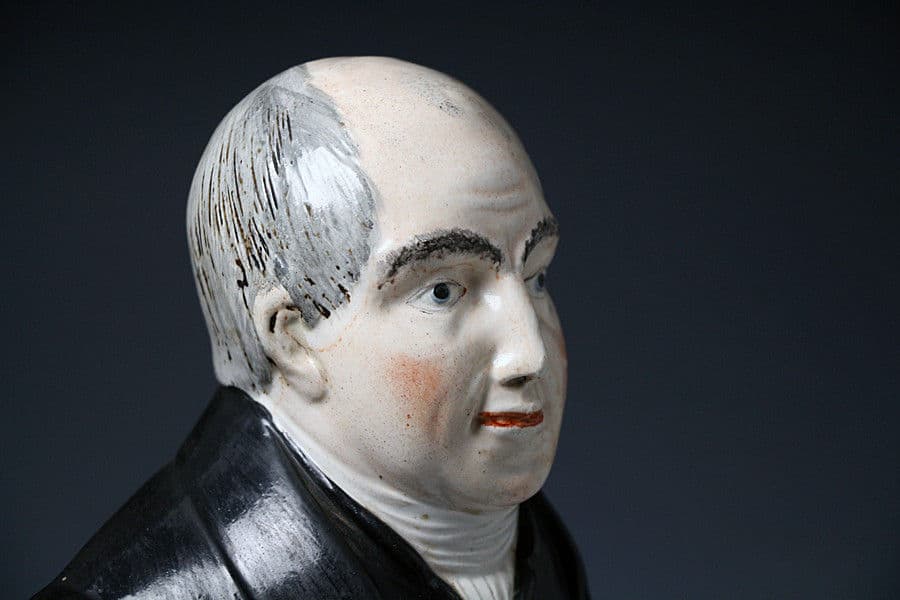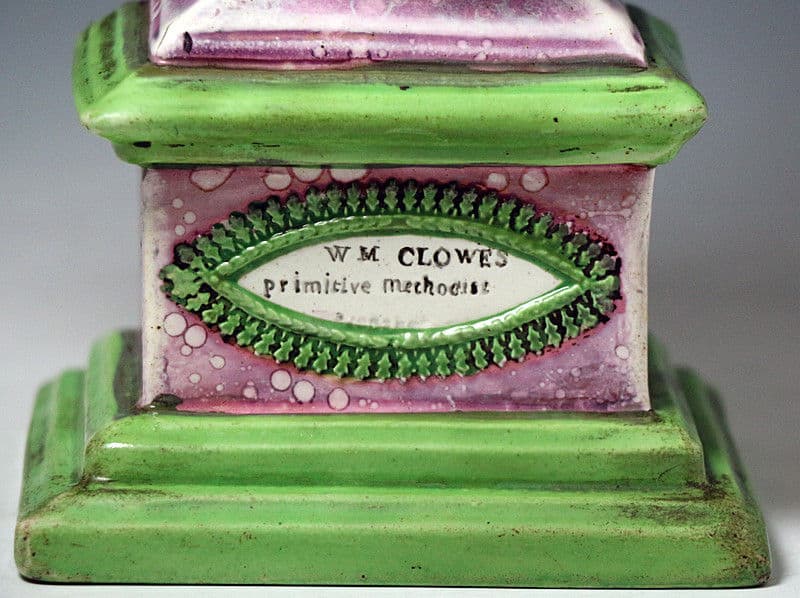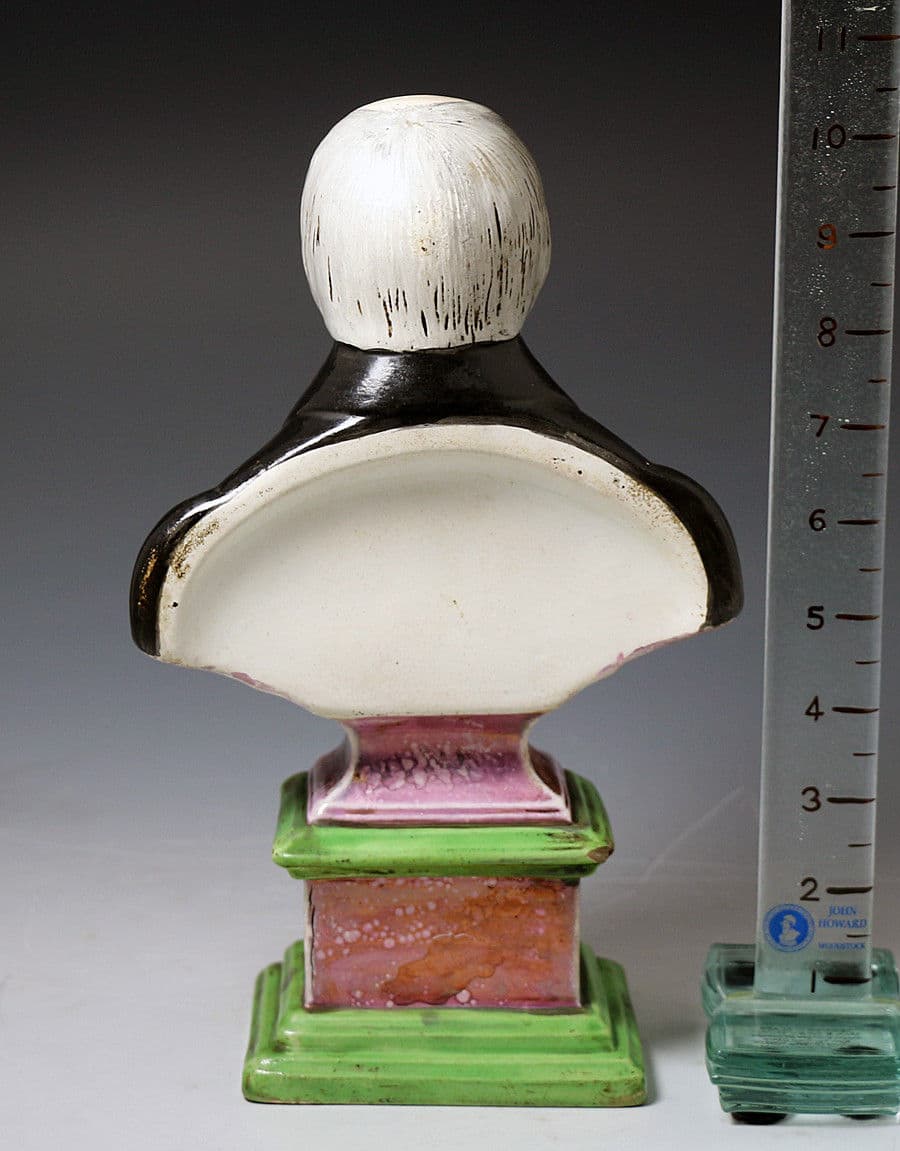Description
A fine antique pottery figure bust of the Primitive Methodist Preacher William Clowes.
This figure is the best example I have ever seen and is unusual with it pink luster decoration at the socle base. The modelling and colouring is exceptional as is the condition. There is a similar example in the Victoria and Albert Museum in London and I am pleased to report that this example is superior. This quality figure was produced at the Barker, Sutton and Till Pottery Staffordshire.
William Clowes (1780–1851), co-founder of the Primitive Methodist movement, was born in Burslem at the heart of the Staffordshire Potteries on March 12, 1780. Clowes’s father was a potter and at ten years of age, Clowes was apprenticed to his uncle, the potter Joseph Wedgwood. A dissolute youth, Clowes aspired to be a dancer, but he abandoned that ambition when he embraced Methodism in January 1805, and from 1806 was appointed to lead Methodist classes.
The nineteenth century found Methodists divided along class lines. On one side were mainstream respectable Wesleyan Methodists; on the other were Methodist splinter sects that included the poorest and most radical believers. These revivalist sects had rooted in industrial regions, and they had names such as “Jumpers” and “Ranters” that described the physical manifestations of their emotionally charged worship. Ironically, Wesleyan Methodists, whose practices Anglicans had long criticized as undignified, withdrew Methodist membership from enthusiastic splinter sects if their behavior lacked decorum.
In May, 1807, Clowes attended a “camp meeting,” a day of outdoor prayer, led by Hugh Bourne at Mow Cop, on the outskirts of the Staffordshire Potteries. The arrival in the Potteries of Lorenzo Dow, an American evangelist who had pioneered revivalist camp meetings in America, had inspired this gathering. Bourne and Clowes were like-minded charismatic evangelists, and both were to be ousted from the Methodist movement. In 1810, Clowes was awaiting approval of his appointment as a circuit preacher when he was expelled because he would not abandon camp meetings.[3] The next year, he and Hugh Bourne and their followers formally organized as the Primitive Methodist Connexion.
The Primitive Methodist movement was strongest in northern England. Much as main-stream Methodism had done it its early days, Primitive Methodism gave the poor a place to belong. It quickly organized itself on the same lines as mainstream Methodism, the Potteries town of Tunstall being its first circuit. Clowes preached until his death on March 2, 1851.









